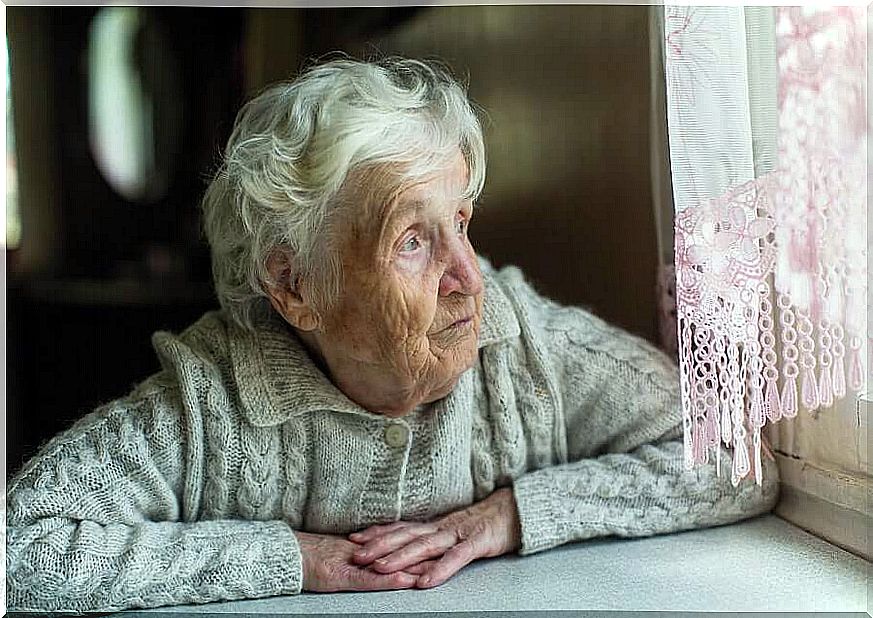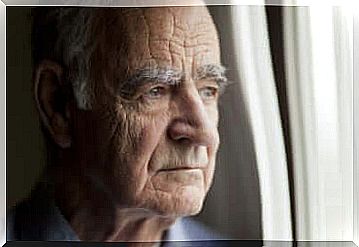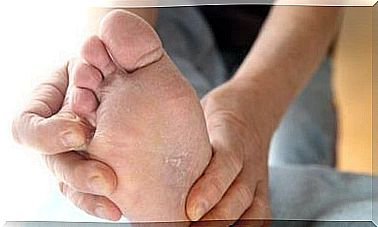Recommendations For Older People In Quarantine
People over 65 are particularly at risk of contracting Covid-19. Therefore, they must strictly adhere to the recommended precautionary measures. Today we invite you to learn more about this topic.

The corona pandemic continues to spread around the world, with the elderly in particular at risk of contracting it. The clinical picture is usually more serious in people over 65 years of age. That is why this risk group needs special protection.
In many places, epidemiologists recommend quarantine and movement restrictions, which are intended to flatten the infection curve. So the goal is to stop the spread in order to gain time. Because in this way the health system can adapt better to the difficult situation and a collapse can be prevented.
The current corona pandemic originated in December 2019 in the Chinese city of Wuhan. Over 80,000 people have been infected in China, but the disease has now spread around the world with drastic consequences.
While the death rate from COVID-19 is generally around 3 to 4 percent, the mortality rate for people over 65 years of age, and especially those over 80 years of age, reaches around 15 percent (although these data vary widely and cannot yet be definitively confirmed ).
Why is quarantine important?
The aim of a (voluntary or compulsory) quarantine, to which the whole population and especially all elderly people should adhere, is to reduce the infection rate. By flattening the infection curve, the health system has more leeway and time to care for sick people, even if the end result is the same number of people, but over a longer period of time.
One of the main goals of isolation is also to protect vulnerable populations. The data indicate that people over 65 in particular can suffer from serious consequences. People with chronic diseases and a weakened immune system are also at greater risk.
Quarantine is therefore a social responsibility rather than a legal provision that comes into effect in different countries. Even young people who do not have any illnesses have to take on this responsibility in order to protect people at risk: friends, neighbors, family members or acquaintances who are in a risk group.

What should older people consider during quarantine?
The precautionary measures that older people should follow during quarantine are very similar to the general recommendations. But they should adhere to it particularly strictly. Social isolation protects against possible infection and illness from Covid-19, which is particularly important for this risk group.
Older people definitely have to stay at home. You should only leave the house if it is absolutely necessary. Under no circumstances should they be in closed rooms with other people. It is best to have family members or younger neighbors bring the necessary groceries home.
Regular hand washing is also very important. Soap and water work best to prevent, disinfectant gel is usually not necessary. If the elderly are visited, they should wash their hands thoroughly immediately upon arrival and touch as few things as possible.
But as already mentioned, visits should only take place if absolutely necessary. Any unnecessary contact with others should be avoided during the quarantine. Children often have no symptoms or only very weak symptoms, but they can transmit the disease. It is therefore not advisable to visit the grandchildren.
Quarantine regulations and restrictions on movement are not equally strict in all countries. Even so, older people should take precautions and have the medicines they need at home for at least a month. Because the regulations can become stricter at any time. Elderly people are best looked after by family members so that they do not have to go to the pharmacy themselves.

What can others do for the elderly?
People who are not in a risk group have to take special care of older people during this difficult time. You can bring them food or medicine to prevent them from leaving the house.
If you have family members over the age of 65, it is also important to encourage them to keep themselves physically and mentally occupied during the isolation. You can do gymnastics at home and keep your brain busy with puzzles or pleasant reading.
If you discover that an elderly person has possible symptoms that indicate a corona infection, you should call the responsible health center immediately. Initial symptoms include fever, cough, and fatigue.
We all have to show responsibility and solidarity in this global crisis. Older people are particularly badly affected by this disease and therefore require special care.









